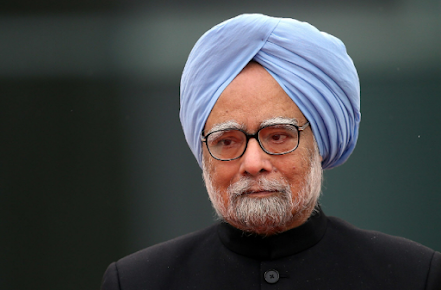Manmohan Singh's 90th Birthday: Celebrating Four Transformative Reforms
Dr. Manmohan Singh, India's former Prime Minister, marks his 90th birthday today, and the occasion provides an opportunity to revisit the remarkable contributions he made to the nation. While many remember him primarily as a former Prime Minister, it is crucial to recognize the invaluable role he played during his tenure as the Finance Minister of India from 1991 to 1996. On this special day, let's reflect on four major reforms that reshaped India during his remarkable career.
1. Economic Liberalization (1991)
In 1991, as the Finance Minister, Dr. Singh orchestrated a significant turning point in India's economic history. He championed economic liberalization, a series of reforms that transformed the Indian economy. These reforms involved reducing trade barriers, dismantling the infamous License Raj system, and opening key sectors to foreign investment. These bold steps kick-started India's journey towards economic growth and globalization.
Dr. Singh's visionary approach helped India move away from the shackles of a socialist economy that had defined the Nehruvian era. His commitment to free-market principles laid the foundation for India's rapid economic expansion in the years to come. It was a momentous shift that marked the beginning of a new era for the Indian economy.
2. National Rural Employment Guarantee Act (NREGA) (2005)
Under Dr. Manmohan Singh's leadership, the Indian government introduced the National Rural Employment Guarantee Act in 2005, later renamed the Mahatma Gandhi National Rural Employment Guarantee Act (MGNREGA). This transformative social welfare initiative aimed to provide a legal guarantee of a minimum of 100 days of employment per year to rural households. The overarching goal was to combat rural poverty and unemployment.
NREGA/MGNREGA was a game-changer for rural India, empowering millions by providing them with an economic safety net. It not only alleviated poverty but also empowered marginalized communities, offering them a lifeline to economic stability.
3. Right to Information Act (RTI) (2005)
During Dr. Manmohan Singh's tenure, the Right to Information Act was enacted, a monumental piece of legislation. This law granted Indian citizens the authority to request information from government agencies and institutions, ushering in a new era of transparency, accountability, and a crackdown on corruption within public administration.
The RTI Act empowered ordinary citizens to hold the government accountable and demanded transparency in decision-making processes. It became a potent tool in the hands of the people, enabling them to participate actively in the democratic process.
4. Indo-US Civil Nuclear Agreement (2005)
Dr. Manmohan Singh's foreign policy legacy includes the Indo-US Civil Nuclear Agreement, often referred to as the 123 Agreement. This historic accord paved the way for civil nuclear cooperation between India and the United States, granting India access to nuclear technology and fuel for its civilian nuclear energy program.
This achievement was no small feat, considering that India is not a signatory to the Nuclear Non-Proliferation Treaty (NPT). The agreement bolstered India's energy security and marked a significant step forward in its quest for clean and sustainable energy sources.
In celebrating Dr. Manmohan Singh's 90th birthday, it's crucial to recognize his pivotal role in shaping India's modern history. His reforms not only transformed the economy but also contributed to social welfare, transparency, and India's standing in the global arena. As we reflect on these achievements, we are reminded of the lasting impact of a leader who dedicated his life to the betterment of his nation. Happy 90th birthday, Dr. Singh!





0 Comments